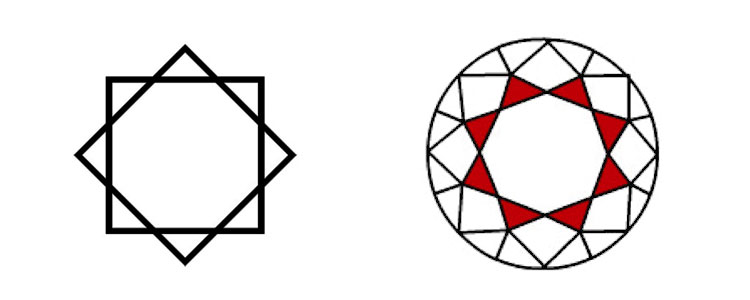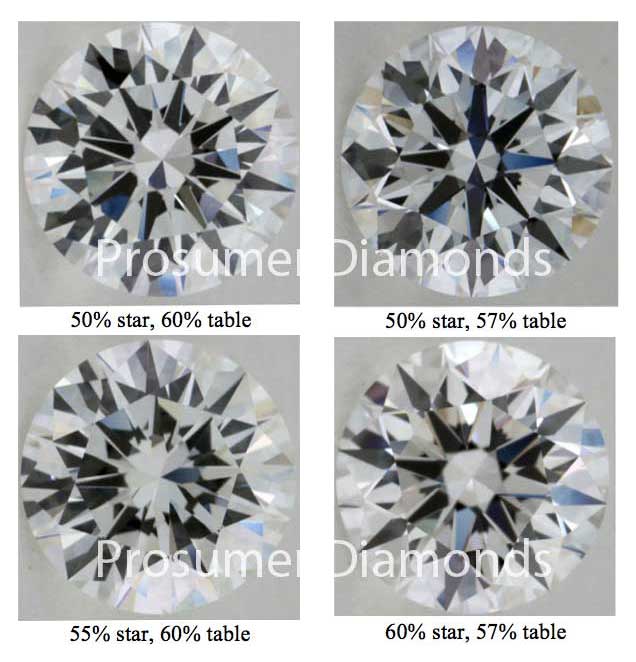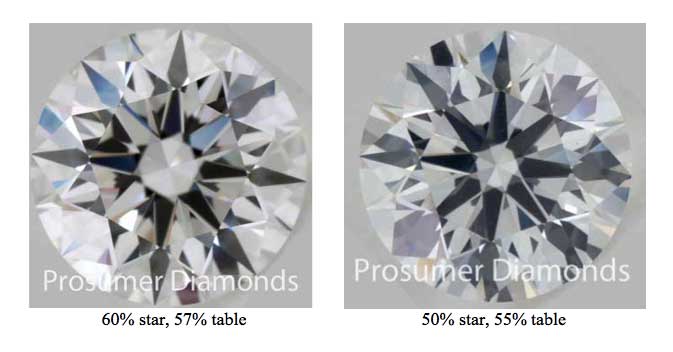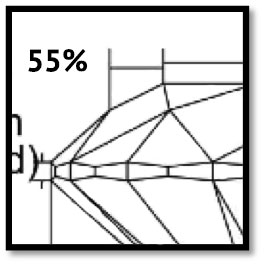However, the star facets can also help us make an educated guess about size the table facet as well. For a diamond with 50% stars and 60% table, the table edge will line up with the edge of the star facet forming a “Star of Lakshmi” named after the Hindu Goddess of wealth.
As the table gets smaller, then the edges will no longer be aligned and rather the star and table edges will become concaved. Take a look at the images below, I want you to focus on the table and star edges. You should be able to see that this trick only works when the diamond has 50% stars.
As a rule of thumb, for every 5% increase in star length, you can add 1% to the estimated table size. That means the table shape of the diamond with 60% star, 57% table should look very similar to a diamond with 50% star, 55% table.
Here is another side by side comparison to show you that these two combination result in a similar table shape.
Light Performance
So far we’ve only been referring to the star length, but without knowing more about the angles, we can’t draw any conclusions about light performance.
Lets have a look at the profile view of the star and upper girdle facets.
If you just go by this image, which is taken from the GIA lab report, then you may come to the wrong conclusion that increasing the steepness of the star facet means that the upper girdles become shallower to compensate.
In fact the opposite is true because a diamond is cut so that the tip of the star facet is never flush with the edge of the upper girdles or meet in a depression. This means the only way to make the star angle steeper is by lengthening it. In general, the upper girdle facets also become steeper with a longer star length.
Light leakage is usually not a problem with the star facets. For example, 60% stars typically have around a 24-degree angle and 78% lower girdles typically have around a 41.5-degree angle.
Conclusion
The star length affects the shape of the table and the angles of the upper girdles. On the surface, the star facets may not seem significant, but they play an important role in working together with the lower girdle, upper girdle, and table facet to affect the appearance of a diamond. Make the stars longer and the upper girdles become steeper weakening the light return in the diamond, make them too short and the upper girdles become too shallow and you lose contrast.
You can’t think about the stars in isolation, you must consider how they work with the other facets.



